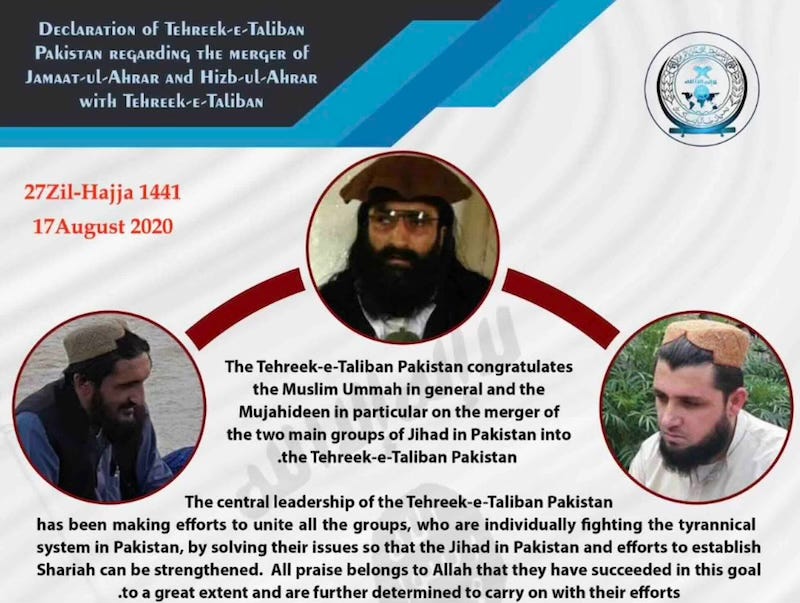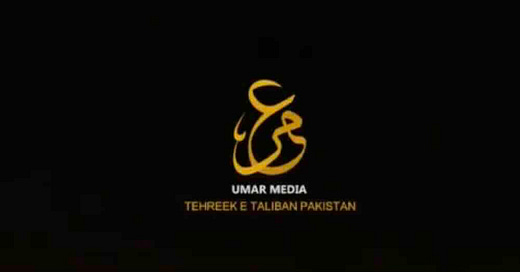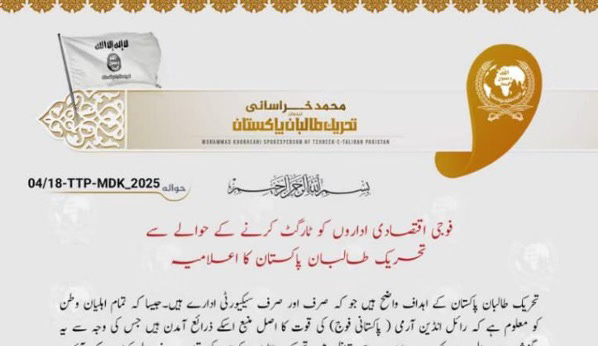Tehreek-e-Taliban Pakistan’s Violent Surge
Mergers, Attacks, and the Future of Militancy in Pakistan in 2025
Tehreek-e-Taliban Pakistan (TTP), the leading jihadist group targeting the Pakistani state, has escalated its violent operations in 2024 and early 2025. The group's resurgence has been facilitated by its sanctuaries in Afghanistan, support from local militant factions, access to sophisticated arms and ammunition and last but not least, ideological and spiritual backing from the Afghan Taliban emirate. This article attempts to provide a detailed account of TTP’s violent activities, including attacks on security forces, kidnappings, and clashes with the state, using documented incidents in January 2025.
In July 2024, the Government of Pakistan declared the group "Fitna al-Khawarij" to counter TTP's influence and activities. This designation, of course, aligns with Islamic teachings, categorizing TTP as a corrupt entity that distorts the image of Islam. The government directive mandates that all official references to TTP members, including "Khawriji," be made to expose their true identity and intentions. This step was part of a broader effort by Pakistan to diminish the ideological appeal of TTP and delegitimize its claims to religious authority. In November 2024, Pakistani military operations in Khyber Pakhtunkhwa and Balochistan killed nearly 200 militants, including 24 commanders from TTP, Lashkar-e-Islam, Jamaat-ul-Ahrar, Hafiz Gul Bahadur Group, Balochistan Liberation Army (BLA), and Balochistan Liberation Front (BLF). The crackdown follows a surge in militant attacks, delivering a major setback to these banned organizations amid intensified counterterrorism efforts.
However, this naming and shaming notwithstanding, TTP continues to dominate the Islamist landscape with an expansion of its operational focus to target military-operated business enterprises aiming to weaken the military’s financial backbone. In a statement in early January 2025, TTP directly targeted Military affiliated companies and named National Logistics Cell (NLC), Frontier Works Organization (FWO), Fauji Cement, Askari Bank, Fauji Fertilizer Company (FFC), Askari Cement, Pakistan Ordnance Factories (POF), Fauji Foundation, Fauji Foods, Askari Fuels, and Defence Housing Authority (DHA). By naming these entities that play a critical role in the economic sustenance of Pakistan’s armed forces, TTP aimed to weaken Pakistan's armed forces’ revenue-generating mechanisms and support system behind the military’s operational capabilities. This shift comes against a backdrop of growing public resentment toward the military’s expansive role in Pakistan’s economy. Over the past year, calls for boycotting military-owned enterprises have gained traction, especially on social media platforms associated with Pakistan Tehreek-e-Insaf (PTI) supporters. The TTP wants to exploit this sentiment, co-opting civilian grievances to justify its campaign. By aligning its agenda with these narratives, the TTP seeks to broaden its ideological appeal and legitimize its actions in the eyes of the public, even as it pursues violent means.
Formed in December 2007 under the leadership of Baitullah Mehsud, TTP aims to overthrow the Pakistani government and establish an Islamic state governed by its interpretation of Sharia law. TTP has been responsible for numerous violent attacks, including suicide bombings, targeted killings, and assaults on military installations, posing a significant security threat to Pakistan. It maintains close operational and ideological ties with Al Qaeda and the Afghan Taliban Emirate.
Escalation of TTP violence in 2025
TTP's increasing aggression against the Pakistani state is evident in the high-profile attacks across Khyber Pakhtunkhwa (KP), Balochistan, and Punjab provinces in 2024. The following incidents in January 2025 highlight the scale and severity of TTP’s campaign:
· January 3: TTP launched a rocket attack on a police station in the I-9 area of Islamabad. Security forces later discovered remnants of a ‘mini-rocket’ described as a crude explosive device.
· January 9: TTP militants abducted 17 Pakistan Atomic Energy Commission (PAEC) contract workers in Qabal Khel, Lakki Marwat. The militants torched their vehicle, releasing a video of the captives. Security forces later rescued eight workers, some with injuries.
· January 27: TTP stormed a Frontier Corps (FC) fort in Gulistan, Qila Abdullah, with a suicide bomber and an explosive-laden vehicle. TTP carried out this attack as a projection of its firepower and, of course, to avenge the killing of their top commanders, Qari Ismail and Saleh Mukhlis, in Khyber Agency on January 25, 2025.
Alliances and strategic consolidation
Pakistan’s Foreign Office has expressed concern over sophisticated weapons left behind after the U.S. withdrawal from Afghanistan in 2021. TTP has reportedly used these arms and ammunition to bolster their attacks inside Pakistan. The Afghan Taliban’s reluctance to dismantle TTP hideouts has further complicated Pakistan’s counterterrorism efforts.

In a series of statements issued in December 2024 and January 2025, TTP announced the formal integration of multiple Balochistan-based militant factions into its organizational structure, signalling an expansion of its operational footprint in the volatile province. On January 16, 2025, TTP confirmed integrating Maulvi Yasir’smilitant group, a faction based in Khuzdar, Balochistan, into its ranks. This move underscores TTP’s increasing focus on western Pakistan, particularly in Balochistan, which has historically been a hotbed of both ethnic separatist and jihadist insurgency.
On January 15, 2025, TTP declared the absorption of Maulavi Shoaib Baloch’s faction, an armed group operating in Mastung District, Balochistan. Mastung has witnessed frequent militant activity, serving as a key transit corridor for insurgents due to its strategic location connecting Balochistan and southern Khyber Pakhtunkhwa. Incorporating Shoaib Baloch’s group further strengthens TTP’s logistical network and recruitment base in the province, signalling an attempt to extend its influence beyond its traditional strongholds in Khyber Pakhtunkhwa and the tribal belt.
On January 14, 2025, TTP announced the merger of Shahid Umar Baloch’s armed group, another faction based in Khuzdar, Balochistan. The successive alignments of these Baloch militant groups with TTP suggest a broader shift in insurgent dynamics, where jihadist and separatist actors are increasingly cooperating in their opposition to the Pakistani state.
These mergers also reflect TTP’s ongoing rivalry with other militant actors, particularly the Hafiz Gul Bahadar group (HGB), which has been vying for influence in Balochistan. As TTP expands its foothold, security challenges in Balochistan and beyond are likely to intensify, with increased militant activity posing a greater threat to Pakistan’s counterinsurgency efforts.
These successive mergers reflect TTP's strategic realignment in Balochistan, where the group has historically maintained a lower presence than Khyber Pakhtunkhwa and the tribal belt. Consolidating local militant outfits under its umbrella suggests a concerted effort to expand influence, enhance operational capacity, and exploit existing regional grievances.
By merging with these factions, TTP has extended its operational network, increased its access to weapons, and created a more complex and resilient insurgency.
Revamping Administrative and Operational Structure
Tehreek-e-Taliban Pakistan has reportedly announced a revised administrative and operational framework for 2025 following a leadership council (Rahbari Shura ) meeting on January 19. The restructuring reflects TTP’s ongoing efforts to consolidate power, enhance operational efficiency, and expand its influence in Pakistan’s tribal regions. Mufti Noor Wali Mehsud will continue to lead the organization, with Mufti Burjan serving as his deputy. The Rahbari Shura now comprises 17 members, including ‘commander’ Ali Dawar, a key militant figure who recently joined TTP, further strengthening its leadership core. Key structural changes include establishing two additional supervision zones to improve command and control over militant operations.
Additionally, new shadow provinces have been introduced under TTP’s administrative control, a move signalling its intent to impose governance structures in areas where state authority is weak. The leadership of both military zones has also been reorganized, potentially enhancing the group’s ability to launch coordinated attacks against Pakistani security forces. One notable appointment is
Mufti Nadeem Dervish, a prominent scholar from Peshawar, joined TTP about a year ago. He has now been formally integrated into the group’s leadership as a member of the central Darul Afta (Institute of Islamic Jurisprudence), reflecting the group’s ongoing efforts to maintain ideological legitimacy and recruit religious scholars to strengthen its radical narrative.
TTP’s latest restructuring comes amid an escalation in its violent campaign against the Pakistani state, particularly in Khyber Pakhtunkhwa and Balochistan, where security forces have faced a surge in militant attacks. The announcement also underscores TTP’s persistent ambitions to challenge Pakistan’s sovereignty, expand its territorial influence, and sustain its insurgency despite increased counterterrorism operations by the Pakistani military.
State Response and Counter-Terrorism Operations
Meanwhile, Pakistan has stepped up its military and diplomatic efforts to curb TTP’s growing influence and neutralize its operational networks. The response includes intensified security operations in conflict-prone areas and diplomatic engagements with Afghanistan and regional actors to limit the group’s cross-border movement.
Pakistan's security forces have intensified counterterrorism operations, particularly in Khyber Pakhtunkhwa and Balochistan, regions where TTP has been most active. In mid-January 2025, a major intelligence-based operation in North Waziristan resulted in the elimination of four high-profile TTP operatives, disrupting planned attacks in the region. Again, on January 27, Security forces conducted a successful raid in Bannu District, neutralizing three TTP militants who were part of an active TTP cell planning targeted assassinations of law enforcement personnel. Also, similar to the December 2024 airstrike, the Pakistan Air Force carried out sporadic air operations on suspected TTP hideouts in South Waziristan, targeting militant supply chains and command structures. Authorities have also increased security deployments in major cities, including Islamabad, Peshawar, and Quetta, to prevent TTP-led suicide attacks and bombings.
Meanwhile, Pakistan has formally demanded that the Taliban government take stricter action against TTP, ensuring that relocated militants do not return to Pakistan or use Afghan soil for staging attacks. Intelligence-sharing efforts between Pakistani and Afghan security agencies have been initiated to track TTP movements and disrupt their logistical networks. As part of diplomatic engagement with Gulf Nations, Pakistan urged the UAE and Qatar to pressure the Afghan Taliban to crack down on the TTP elements operating within Afghanistan.
Concluding Thoughts
TTP's future trajectory in 2025 will be influenced by several factors, including Pakistan’s military response, Afghan Taliban policies, and international counterterrorism efforts. While the group has demonstrated resilience, its ability to sustain high-intensity attacks may be curtailed by increased Pakistani military operations and growing international pressure on the Afghan Taliban to sever ties with TTP.
However, if the Taliban continue to provide safe havens for TTP militants, Pakistan may escalate cross-border air strikes or seek greater cooperation with regional allies to neutralize threats. Additionally, TTP’s alliances with other militant factions in Balochistan and KP could lead to an expansion of its operations, making it a persistent security challenge for Pakistan in the coming years. While Pakistan’s counterterrorism strategy is expected to intensify, TTP’s adaptability and external support networks will determine its operational strength in 2025 and beyond.
Undoubtedly, the resurgence of TTP violence poses a severe threat to Pakistan’s internal stability. The group’s ability to conduct high-profile attacks, kidnap civilians and government officials, and challenge state security forces indicates a well-resourced insurgency. The Pakistani government faces the dual challenge of intensifying military operations while engaging in diplomatic negotiations to pressure the Afghan Taliban into taking decisive action against TTP. Without a coordinated strategy, the threat of TTP violence against Pakistan will persist in 2025 and beyond.
Animesh Roul is the executive director of the Society for the Study of Peace and Conflict, a policy research group based in New Delhi. Email: animeshroul@gmail.com








TTP's propaganda infographic claimed responsibility for 110 attacks during January 2025. The attacks are geographically distributed across various regions, with significant activity in Khyber Pakhtunkhwa (e.g., North and South Waziristan) and other parts of Pakistan.